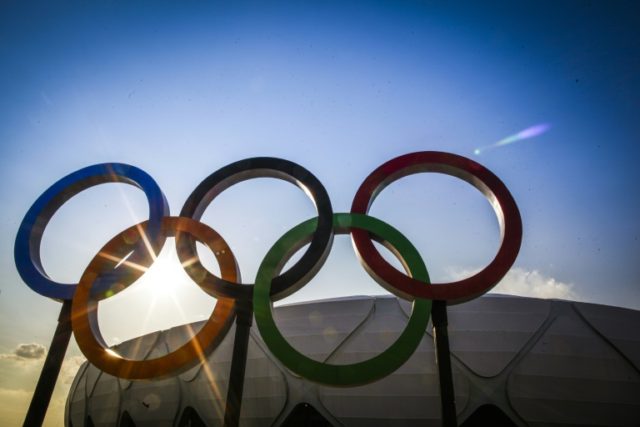Paris (AFP) – The cost of Olympic television rights may look hair-raising but Eurosport is confident it will get back the 1.3 billion euros ($1.4 billion) it laid out to get European rights, according to its chief executive.
Counting down to the Pyeongchang 2018 Winter Games, the company, owned by US media giant Discovery Communications, can from January 1 use the Olympic rings on screens under its surprise deal with the International Olympic Committee (IOC).
But it faces a key 2017 with sub-rights accords in France, Italy and Spain to be sealed that could decide how successful its gamble for gold will be.
“I think sports rights potentially are bets,” Eurosport chief executive Peter Hutton told AFP in an interview. But in the case of the European rights, he added, “I think it is a pretty safe bet and on that basis I think a really important move for us.”
Television rights contributed about three quarters of the IOC’s $5.6 billion revenues for 2013-2016 and the price is continually going up. Discovery’s June 2015 deal with the IOC, covering 50 countries for the rights from 2018 to 2024, shocked the European broadcasting industry.
“The price they paid was high. But they have taken a tough line with national broadcasters while building up their own brand,” one national television executive who has negotiated with Eurosport told AFP.
“It could still go wrong but it is looking less of a risk and this kind of development is a real challenge to national broadcasters,” added the executive, who spoke on condition of anonymity.
The European rights went for more than twice what China’s state-run CCTV is believed to have paid for national rights over the next four Olympics.
But it is still dwarfed by the more than $12 billion that NBC is paying to show the Olympics to a US audience from 2012 to 2032.
– ‘Massive challenge’ –
Eurosport has agreed to let the BBC keep showing the Games in Britain until 2024. National companies from Belarus to Czech Republic have also signed up. But German state companies ARD/ZDF said the price was too high.
Now Eurosport will show the Olympics in Germany on its own channels. That will add to the massive project it has taken on to produce Olympic programmes for diverse tastes across Scandinavia and other European nations.
Germany, said Hutton, will be “a massive challenge” and that Eurosport had not expected the collapse of the talks. But it has not dimmed the company’s confidence.
“You look at the sub licensing terms, you look at the advertising income, you look at your digital income, then you break it down by country and then it is not quite as scary.”
“We have a few more deals to go. Spain is still out there, Italy is still out there. France for the second cycle (after 2020) is still out there, Turkey is still out there,” said Hutton. France could be particularly important as it is a leading contender with Los Angeles and Budapest to host the 2024 Olympics.
But Hutton said Eurosport was “ahead of schedule” on the deals and must now grip viewers and adapt to the way they want to watch the Olympics.
It has hired Olympic legends such as Tina Maze in skiing, Peter Forsberg in ice hockey and Sven Hannawald and Martin Schmitt in ski jumping to win over national audiences.
“There is going to have to be a lot of elbow room in the dressing room. It is important that you invest in the talent that gives you the credibility, gives you relevance.”
Bracing for the public switch from traditional television to other media is also taxing sports rights holders who have to build muscle across social media, digital services, free and paid broadcasting.
“It is not as simple as one product, one channel any more,” said Hutton, who predicted that between now and Tokyo 2020 targeted live streaming will increase, there will be more hours of live broadcasts and more channels dedicated to Olympic coverage.

COMMENTS
Please let us know if you're having issues with commenting.